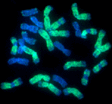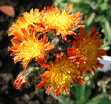







Symposia
The title and a brief outline of the session contents are indicated along with the member of the scientific committee responsible for that session.
| Session 1: | Evolutionary history and speciation (Judith Fehrer) Phylogeny, reticulate versus cladogenetic evolution, gene trees, taxonomic consequences and distribution of polyploidy |
| Session 2: | Meiosis, embryology, reproduction and apomixis/parthenogenesis (Anna Koltunow) Mechanisms of polyploid formation, maintenance, and development; population structure of partial asexuals |
| Session 3: | Analysis and modelling of population structure (Brian Husband) Approaches for molecular data analysis of mixed ploidy populations; ecology and dynamics of polyploid or mixed-ploidy populations |
| Session 4A: | The long- and short-term evolutionary genomics of polyploidy (Andrew Leitch) Effects on genome size, gene composition, intergenomic recombination and gene conversion, chromosome and genome structure, comparative genomics |
| Session 4B: | The long- and short-term evolutionary genomics of polyploidy (Jonathan Wendel) Effects on gene expression, sub- and neofunctionalization, genomic dominance, combinatorial possibilities |
| Session 5: | The epigenetic basis of natural variation (Aleš Kovařík) Chromatin epigenetic markers, small RNA world, epigenetic networking, epigenetics and development |
| Session 6: | Polyploid phenotypes (Jaroslav Doležel) Influences of polyploidy on physiology, flowering, evo-devo, ecological adaptation, metabolome, crop improvement, breeding programs |
| Session 7: | Hybridization, polyploidy, and invasiveness (Malika Aïnouche) Ecology, genetics and genomics of hybrid and polyploid invasives; impacts on biodiversity |
Oral presentations (all sessions): In addition to the above-mentioned committee members, Maurine Neiman will participate in the selection of contributed talks on organisms other than plants. Abstracts whose authors have expressed interest to publish their data in the special issue of Heredity will additionally be evaluated by Barbara K. Mable (handling editor).